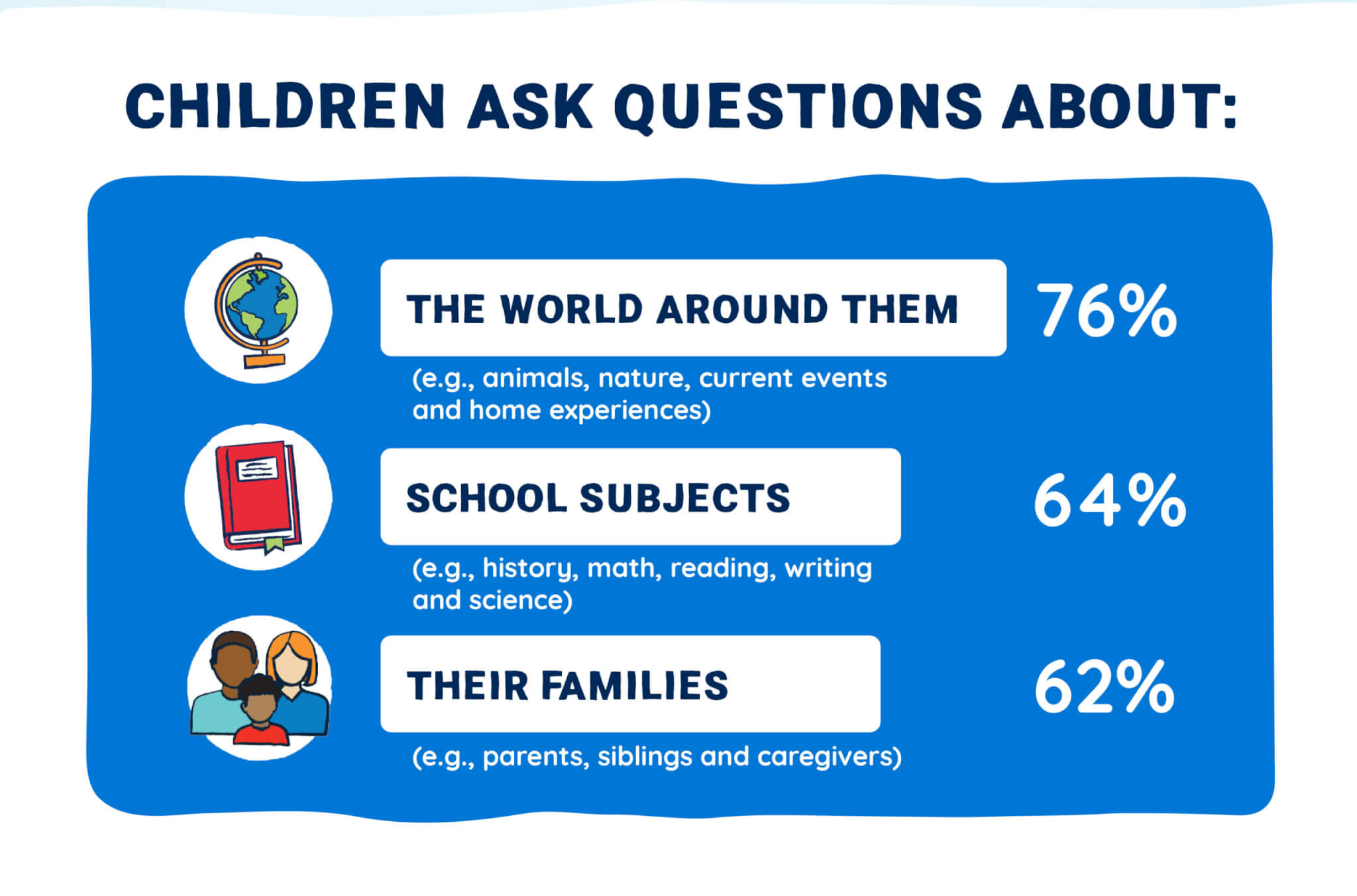NEW YORK — If you’re a young parent, you’re probably used to hearing “why?” a lot! With that in mind, a new survey finds moms and dads field an average of 11 questions from their young children each day.
The new poll of 2,000 parents of kids under six finds that between being asked “what?” (37%), “when?” (22%), and “why?” (11%), parents are always on call when their kids get curious.
Children most commonly ask questions to better understand the world around them (76%), such as asking about animals, nature, current events, and home experiences. Other topics of interest include school subjects such as math, reading, or science (64%) and family-related inquiries, such as questions about their parents, siblings, or caregivers (62%).
When asked about the most interesting question their child has ever asked, parents highlight, “Why is the sky so high?” and “Why can fish keep their eyes open in water?”
Children’s questions may be frequent, but they aren’t always easy, as parents admit they can confidently answer an average of only 42 percent of their child’s questions. In the event they’re stumped, parents turn to their friends who are also parents (63%), their doctor (49%), and faculty or teachers at their child’s school (46%) to source answers.

Conducted by OnePoll on behalf of The Goddard School, results also reveal that 81 percent of parents learn just as much from their child as their child learns from them. Many parents describe their child as intelligent (57%), inquisitive (56%) or curious (43%). Parents who identify their child as “curious” are most likely to “strongly agree” that learning from one another is a two-way street.
The average parent learns something new from their child about five times per week, and four in five parents are surprised by their child’s knowledge of certain topics.
In order to foster their child’s creativity, parents give them opportunities to ask others questions (65%), expose them to different lifestyles and cultures (59%), let them explore the world around them (59%), and encourage them to play and use their imagination (45%).
“It’s no secret that kids are curious and love to ask questions,” says spokesperson Dr. Lauren (Starnes) Loquasto, senior vice president and chief academic officer at “Goddard Systems, in a statement. “It’s important for parents, caregivers, and educators to harness every child’s innate inquisitiveness to help them develop and grow. When selecting a preschool, I encourage parents to seek programs that value the power of curiosity and foster their students’ interests through questions to help them discover the joy and wonder of learning.”
Beyond fostering curiosity, when asked to identify the top areas in which their child needs the most support or improvement, parents say learning social skills (68%), gaining social-emotional intelligence (51%), being in new situations (49%) and learning how to be independent (47%).
Thankfully, aside from the curriculum, parents believe that the benefits their child receives from attending school include learning those social skills (69%), being exposed to different situations (52%), and learning independence (52%).
“Attending preschool can be a valuable avenue for young children to support their social-emotional growth, and prepare them for academics later in life,” adds Dr. Loquasto. “However, all parents and caregivers can support the well-rounded development of their children by embracing a child’s curiosity, appreciating their unique talents and personalities and supporting their individual social, emotional and academic development.”
Survey methodology:
This random double-opt-in survey of 2,000 parents of kids ages 0-6 was commissioned by The Goddard School between October 17 and October 20, 2023. It was conducted by market research company OnePoll, whose team members are members of the Market Research Society and have corporate membership to the American Association for Public Opinion Research (AAPOR) and the European Society for Opinion and Marketing Research (ESOMAR).

